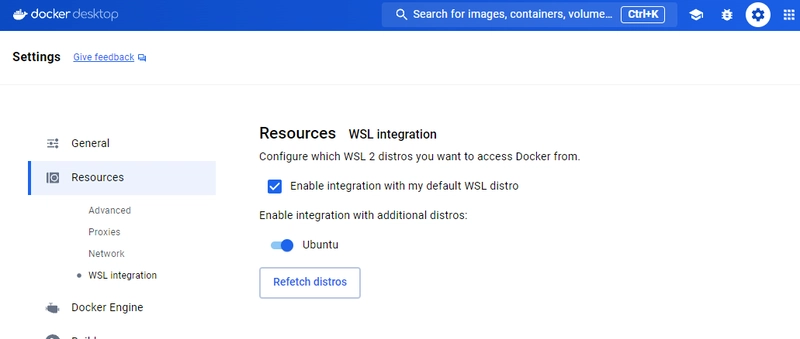What to Know If You’re a 1099 Independent Contractor
Thinking about becoming a 1099 independent contractor? Here's what you should know when weighing being an employee vs. being self-employed. The post What to Know If You’re a 1099 Independent Contractor appeared first on The White Coat Investor - Investing & Personal Finance for Doctors.

 By Dr. Jim Dahle, WCI Founder
By Dr. Jim Dahle, WCI Founder
Here's a question:
“My new employer wants to make me a ‘1099.' What do I need to know as I transition away from being a true employee?”
First, let’s make sure we understand the terminology. Physicians are typically paid on one of three types of tax forms: W-2, K-1, or 1099. Those who receive a W-2 at the end of the year are employees, those paid on a K-1 are partners, and those paid on a 1099 are independent contractors. Thus, there is no such thing as a “1099 employee.”
If you’re given a 1099 at the end of the year, you’re not an employee; you’re in business for yourself. You’re self-employed. You are the employer, and your business contracts with the hospital or other business for your personal services. As the employer, you are now responsible for things your employer would have provided if you were an employee.
What to Know as a 1099 Independent Contractor
The first question a self-employed physician should ask themselves is what kind of business structure they should use. The simplest is “sole proprietorship,” which is what you have if you don’t deliberately form something else. While it's a good idea to get an Employer Identification Number (EIN), which can be obtained online in 30 seconds for free, you are allowed to just use your Social Security number when you fill out a W-9 for the “employer.”
Some physicians consider forming a Limited Liability Company (LLC) or a corporation, thinking this will somehow reduce their malpractice risk. In reality, malpractice is always personal, and a business shell won’t protect you. The main reason some physicians form an LLC or, more rarely, a corporation is to make an “S election” and designate some of their earnings as “distributions” rather than salary to save some money on Medicare taxes. The additional hassle and expense must be weighed against the tax savings. For the most part, your business expense deductions are the same with any type of structure.
Tax Implications
Perhaps the biggest change for a physician “going 1099” is the need to withhold and pay your own taxes. Employers are required to withhold a certain amount in federal, payroll, and sometimes state taxes from your paycheck and send that money to the government on your behalf. Without an employer, you are now responsible for doing this.
The way it is done by sole proprietorships is to send in a check with IRS Form 1040-ES (or pay online) with “quarterly estimated payments” on April 15, June 15, September 15, and January 15 for the previous quarter. Note that there are only two months between April 15 and June 15. The biggest financial error a new independent contractor can make is to not set money aside to pay this tax bill each quarter. A typical emergency physician will likely find this amount to be between 20%-30% of their income, although it may be higher or lower. Calculating this amount is challenging, and it often involves a little guesswork. If you underpay by a little, there will be a penalty when you file your taxes on April 15, but it isn’t too bad. It is essentially equal to the interest the money you should have paid to the government earned in the meantime in a money market fund.
A more significant tax change is that you now must pay both halves of the payroll taxes, Social Security, and Medicare. Typically, an employer and an employee split this cost equally; however, as an independent contractor, you are the employer AND the employee and are now responsible for both.
More information here:
Best Retirement Savings Plans for the Self-Employed
Getting Benefits
Independent contractors are also responsible for all of their own benefits, with the frequent exception of malpractice insurance. You will now be choosing and funding your own retirement accounts; paying for your own health insurance; and taking care of your own licensing, credentialing, and Continuing Medical Education (CME) costs. With the additional cost of benefits and payroll taxes, an independent contractor should be paid significantly more than an employee doing the same job. For a typical emergency physician, about 10% more is a good rule of thumb, but it is best to calculate the exact difference when comparing jobs of different types.
The best retirement plan for a typical independent contractor emergency physician is an individual (solo) 401(k). In 2025, a full-time physician under 50 should earn enough to max out the solo 401(k) with a $70,000 contribution. High savers may add a cash balance defined benefit plan to the solo 401(k). Solo 401(k)s can be opened for free at Fidelity or Schwab. But for a relatively low fee, a better, customized plan with more features and better service is available from smaller, boutique vendors.
More information here:
How to Get Locums Work Without a Locums Agency
Deducting Expenses
Business owners, like an independent contractor emergency physician, can deduct their legitimate business expenses. “Writing off” these expenses does not mean you get them for free; it just means you are allowed to buy them with pre-tax dollars. This reduces the cost of things like CME, scrubs, and other business expenses by 25%-45%. Items used partially for personal use are deductible only to the extent they are used in the business. If 10% of the use of your phone is for business, you can deduct 10% of its cost. While business mileage is deductible, your commute to the hospital from home is not generally business mileage.
It is important to keep your business affairs separate from your personal affairs. All business income and expenses should be run through a separate business bank account. A business credit card is probably a good idea too, although it is just as dumb to carry a balance on a high interest rate business card as a high interest rate personal card.
Many physicians prefer the control and often higher income available as an independent contractor. Truthfully, it is not all that different from being an employee, even if the initial transition can be intimidating.
Looking to increase your income or renegotiate an existing contract? Hop on over to the WCI physician contract review page, where you can find vetted lawyers and compare your contract to other docs.
What other questions do you have if you're thinking about going 1099? Do you prefer being self-employed or being an employee?
[This article was originally published at ACEPNow.]
The post What to Know If You’re a 1099 Independent Contractor appeared first on The White Coat Investor - Investing & Personal Finance for Doctors.








































/https://tf-cmsv2-smithsonianmag-media.s3.amazonaws.com/filer_public/a6/73/a673143a-c068-4f51-a040-6d4f37d601c0/gettyimages-1124673966_web.jpg?#)








































